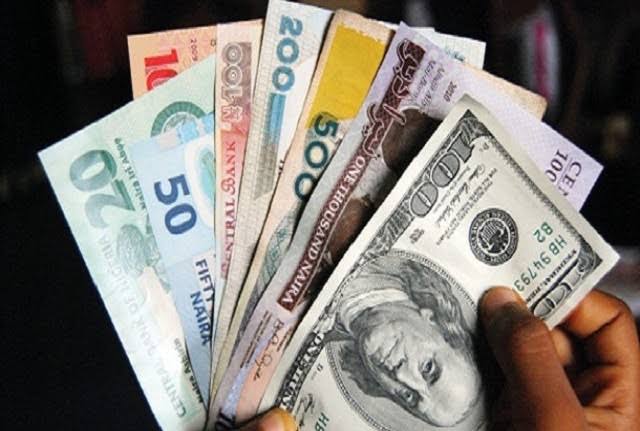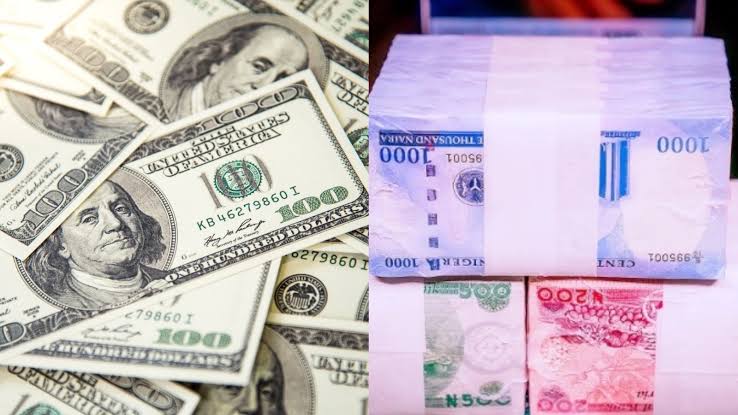Nigeria implemented a new foreign exchange policy that resulted in the naira reaching a record low against the US dollar, depreciating by 13.91% in its initial week of implementation. This policy aims to establish a unified and flexible exchange rate regime and has received positive feedback from both local and foreign investors.
Although price discovery is still ongoing and the naira has weakened against major currencies, analysts anticipate stability as liquidity increases and confidence improves.
Read Also Don’t continue in Buhari’s Injustice, Release Nnamdi Kanu – Ejimakor Appeals To Tinubu
Last week, the naira experienced a significant drop against the dollar due to the implementation of Nigeria’s new foreign exchange policy. Announced by the Central Bank of Nigeria on June 15th, 2023, the policy allows the market to determine the naira’s exchange rate, ending the multiple and distorted rates that had been in place for years.
This move was welcomed by both local and foreign investors who had long advocated for a unified and flexible exchange rate regime in Africa’s largest economy.
Pay attention to Just In : APC Suspends State Chairman
The policy is expected to enhance the supply of foreign exchange and alleviate the pressure on the naira, which had been facing challenges due to low oil prices and declining foreign reserves.
However, under the new system, the naira depreciated by 13.91% during the first full week of trading, closing at N770.17/$1 on Friday, June 23rd, 2023, compared to N663.04/$1 on Friday, June 16th, 2023.
Additionally, the naira weakened against other major currencies like the euro and the pound sterling.
Dollar to Naira exchange rate today Sunday June 25, 2023
The depreciation of the naira reflects the underlying demand and supply dynamics in the foreign exchange market, as well as the uncertainty and speculation surrounding the policy change.
Some analysts believe that the naira will stabilize in the upcoming weeks as more liquidity enters the market and confidence improves.
The Central Bank of Nigeria has assured the public that it will intervene in the market when necessary to ensure stability and prevent excessive volatility. It has also committed to maintaining transparency and accountability in its operations and providing timely and accurate data on the foreign exchange market.
According to a recent Nairametrics article, the apex bank injected $29.5 million into the investor and exporter window at an average rate of N765/$1, indicating that it was their preferred price point.
Furthermore, in the past week, notable developments and significant exchange rate fluctuations were observed in the Nigerian forex market.
The Central Bank of Nigeria introduced the eNaira as a payment option for diaspora remittances, aiming to liberalize payout methods. Operational changes were also implemented, allowing unrestricted access to funds in domiciliary accounts.
During the week, Nairametrics confirmed an intra-day high exchange rate of N815/$1 at the official Investor & Exporter Window, the highest recorded since the window’s launch in 2018.
In terms of background, the new foreign exchange policy is part of the broader economic reform agenda of the Bola Ahmed Tinubu administration, which assumed power on May 29, 2023.
The administration is determined to revive Nigeria’s economy, which has been severely impacted by the COVID-19 pandemic, insecurity, and corruption.
Diversifying the economy away from its heavy reliance on oil, which accounts for approximately 90% of foreign exchange earnings and 60% of government revenue, is a key objective of the administration. Sectors such as agriculture, mining, manufacturing, and services have been identified as potential drivers of growth and job creation.
The success of Nigeria’s new foreign exchange policy hinges on its effective implementation and sustainability, as well as how it interacts with other macroeconomic policies and factors. While the policy represents a bold step towards a more market-driven and competitive economy, it should be noted that it alone cannot solve all of Nigeria’s economic challenges.
The administration’s efforts to revive the economy and diversify it beyond oil dependency are commendable. However, the success of these endeavors will depend on various factors, including effective implementation, sustained commitment, and coordination with other economic policies.
To address Nigeria’s economic woes caused by the COVID-19 pandemic, insecurity, and corruption, the administration must prioritize stability, transparency, and accountability. It should continue to attract both local and foreign investors by creating an enabling business environment and implementing investor-friendly policies.
Moreover, the government needs to focus on developing key sectors such as agriculture, mining, manufacturing, and services to stimulate growth, create employment opportunities, and reduce reliance on oil revenue. This will require targeted investments, infrastructure development, and supportive policies that encourage innovation and entrepreneurship.
The Central Bank of Nigeria’s intervention in the foreign exchange market is crucial to maintaining stability and preventing excessive volatility. The bank should continue to monitor and adjust its interventions as needed while ensuring transparency in its operations and providing timely and accurate data to market participants.
Overall, the success of Nigeria’s economic reform agenda, including the foreign exchange policy, hinges on a comprehensive and holistic approach. By addressing multiple challenges simultaneously, implementing effective policies, and fostering a conducive environment for economic growth, Nigeria can pave the way for a more resilient and prosperous future.








